LitLink
MOBILE DESIGN
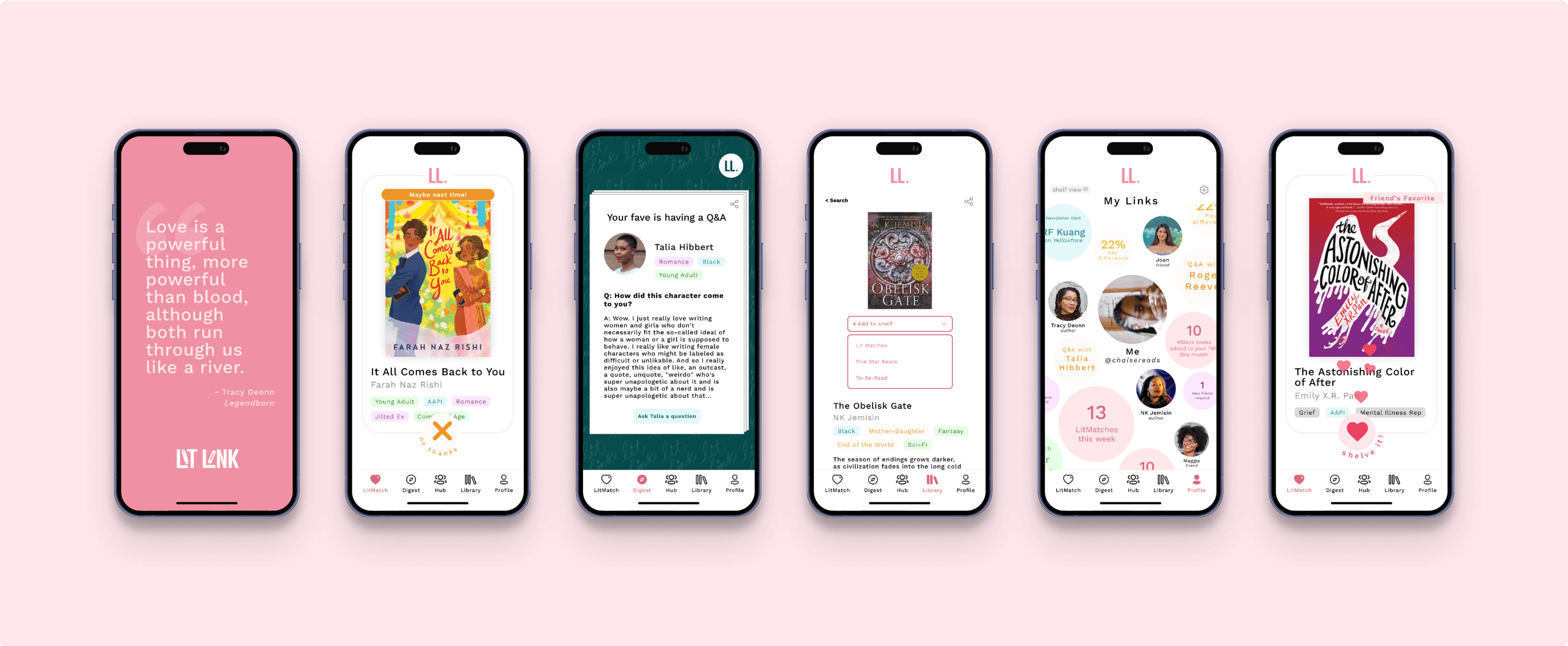
INTRODUCTION
LitLink is a mobile application that seeks to bring diverse authors and their stories to the forefront of the literary world. Combining the features of dating apps and book-tracking apps, LitLink offers a flirty & fun interface for users to find diverse books that suit their reading tastes.
RESPONSIBILITIES
UX Research
UX/UI Mobile Design
Sketching
Prototyping
TOOLS
Figma
Photoshop
Illustrator
UserTesting
TIMELINE
Nov 2023 - Jan 2024
OVERVIEW OF THE DESIGNED EXPERIENCE
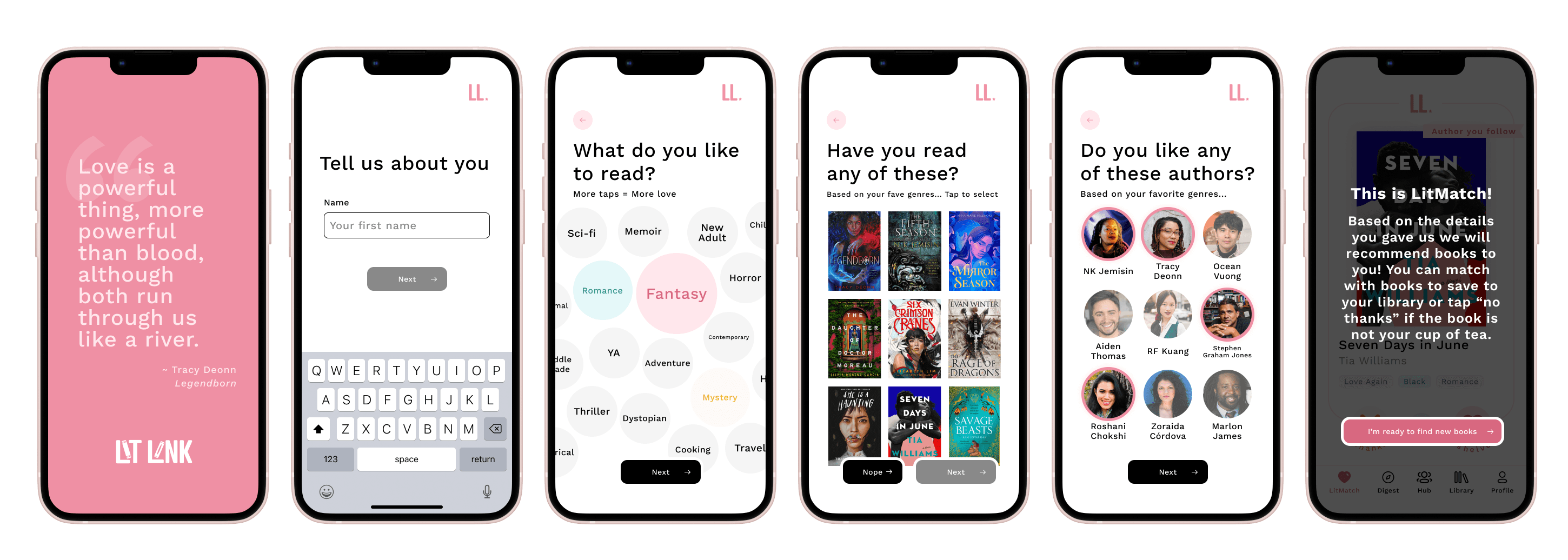
Home of Carely doctor-facing dashboard
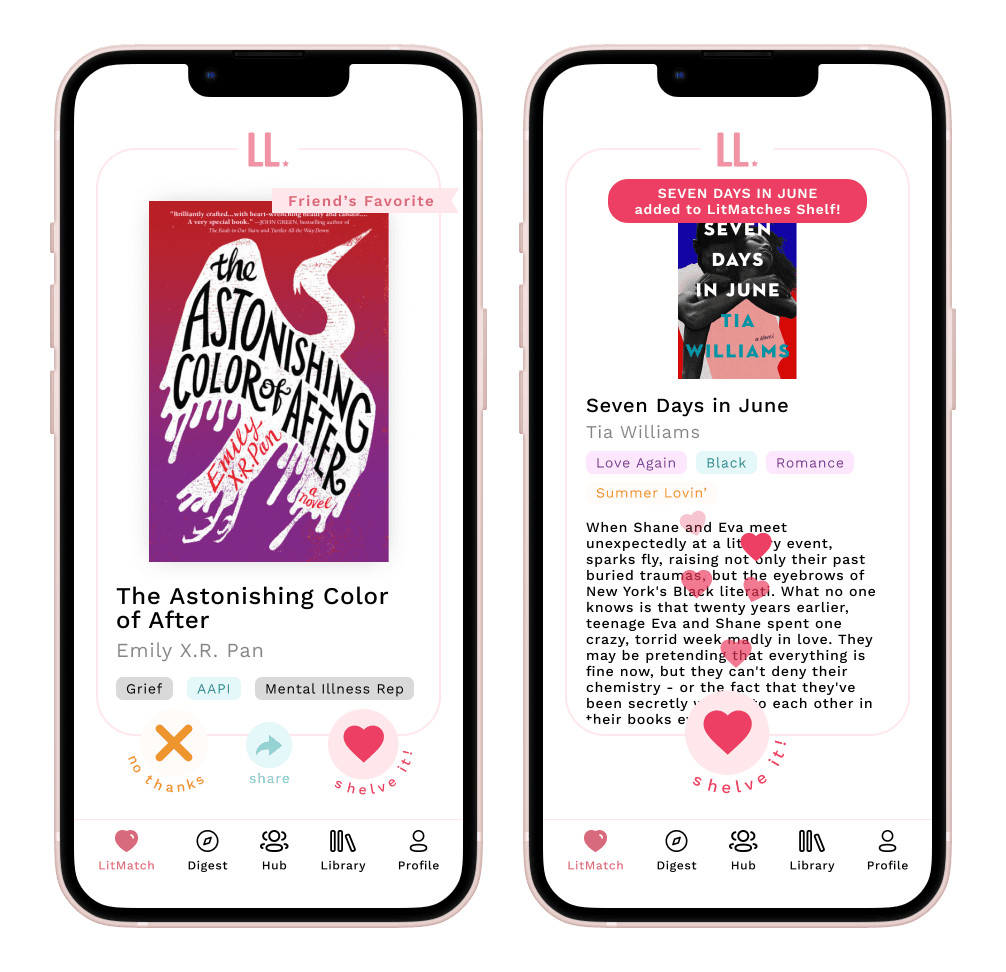
Patient chart
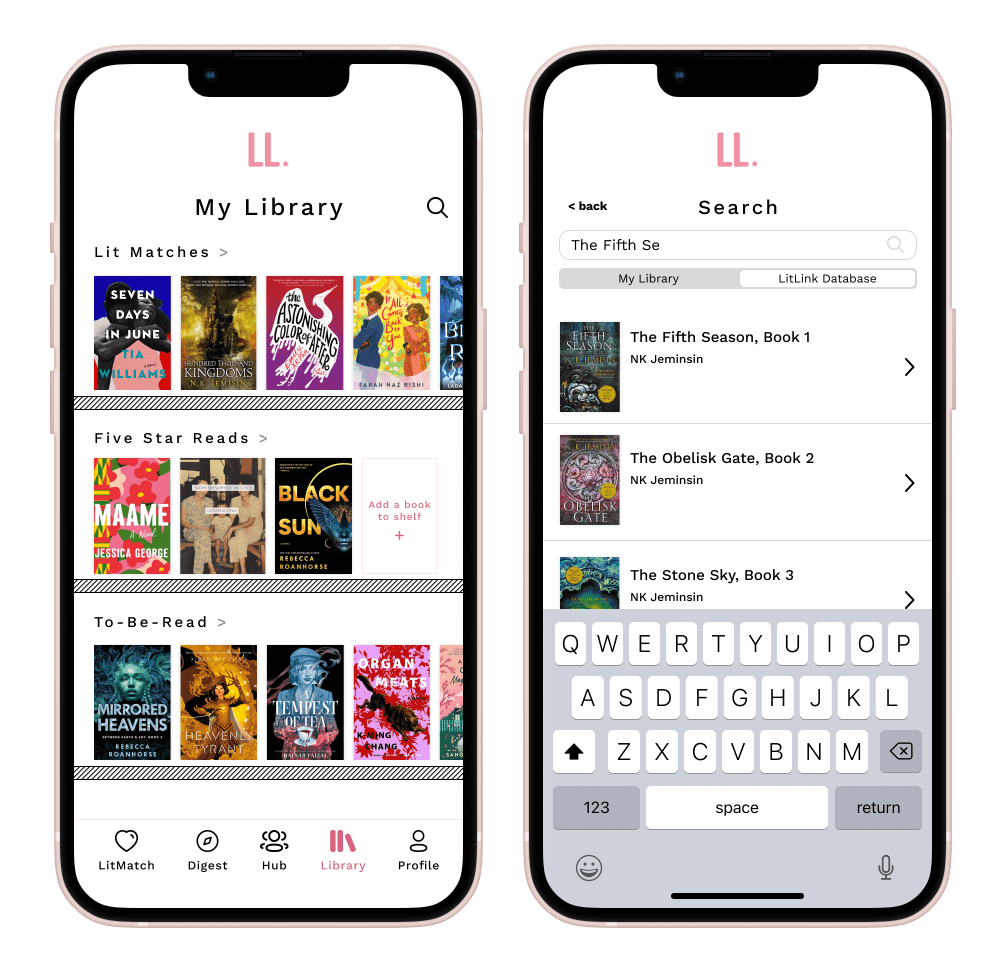
Appointment calendar
BACKGROUND
The Vision
In today's literary landscape, there is a pressing need to address the deeply rooted disparities within the publishing industry.
LitLink strives to revolutionize how readers discover new books by offering features such as diverse recommendations, author profiles, and a user-unique newsletter, while also underscoring the diversity disparities of the publishing industry.
RESEARCH
White Paper Research
Before diving into designs, I wanted to first look at websites and articles that mentioned key statistics to be mindful of from both the reader and the author perspective.
Reader’s Perspective:
1. Desire for diverse stories increased in 2020
2. Marginalized readers are beginning to take up more readership space
3. Reading list is influenced by social media
Author’s Perspective:
1. Receive less marketing support from publishers
2. Want to connect with loyal and new readers
3. Marginalized authors receive less engagement than their counterparts

RESEARCH
Competitive Analysis
Although our app is something that hasn’t been done before, we wanted to take a closer look at the companies that demand the attention of readers and examine their levels of success or failure.
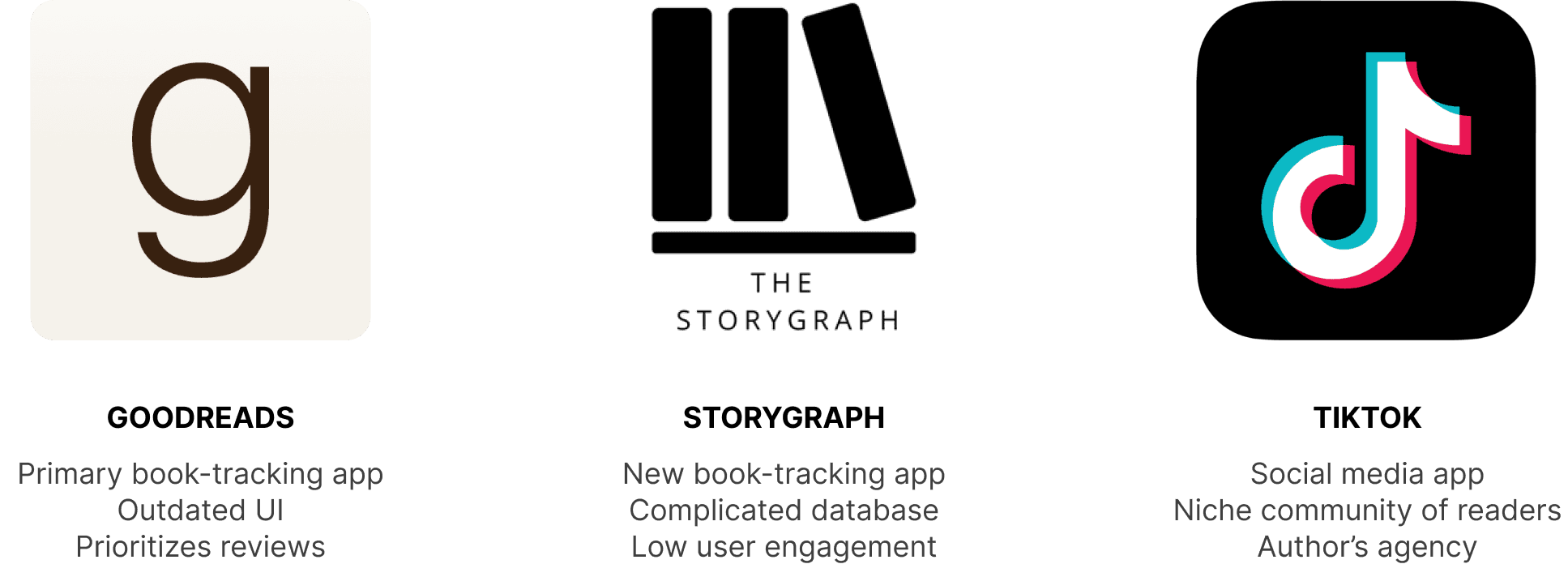
RESEARCH
User Interviews
interviewed twelve people: 7 English majors, 3 avid readers and non-English majors, and 2 adults who do not read regularly. I asked them the following questions:
1. Where do you find books to read?
2. What is your favorite part about a book-related digital platform?
3. How diverse is your reading taste?
4. How do you describe “diverse” reading?
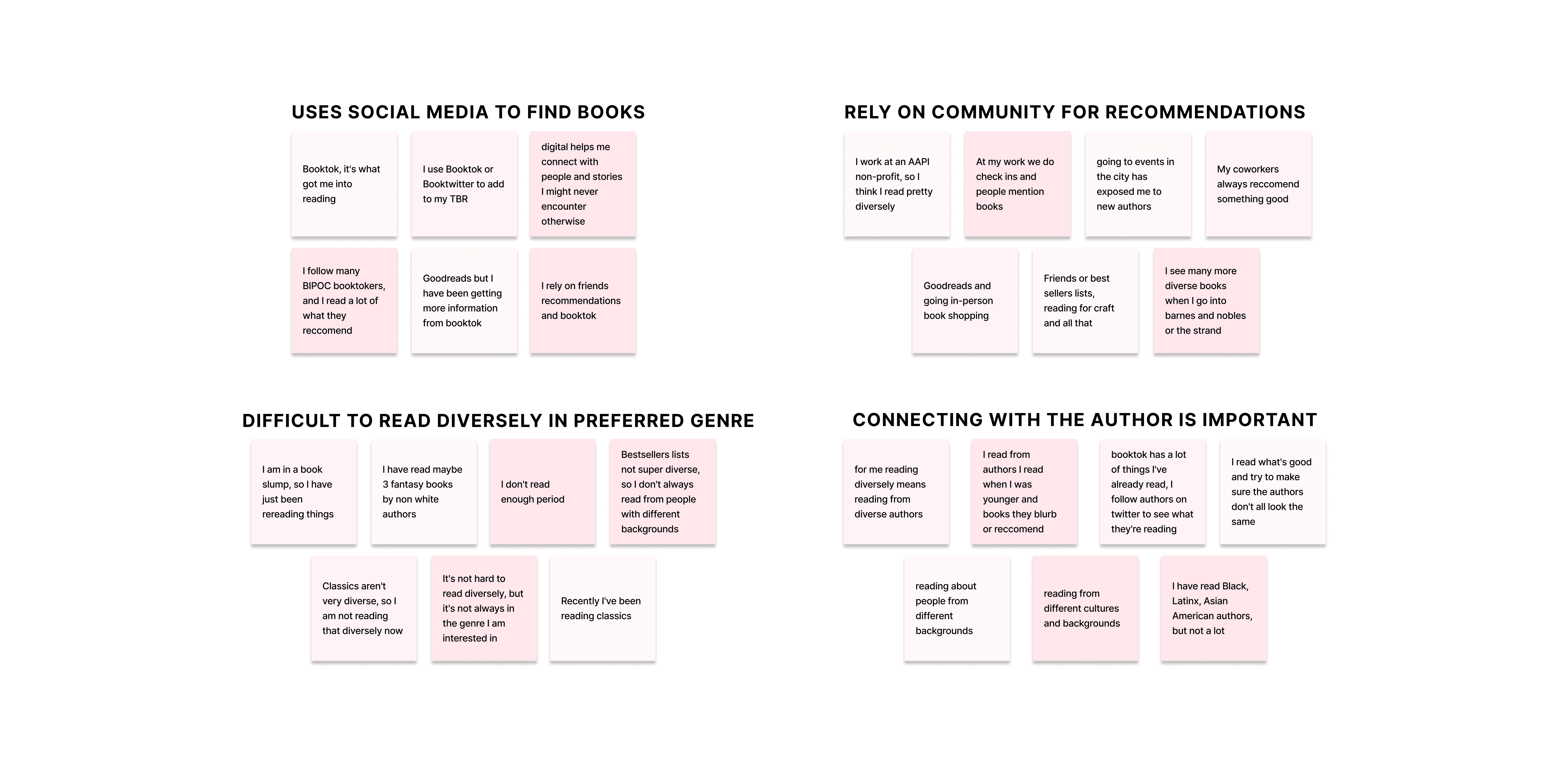
RESEARCH
User Pain Points
And after these 12 interviews & 50 surveys, I concluded that:

Readers want to consume diversely in their preferred genre. They rely on recommendations from their community members, in addition to book-tracking apps and social media. Readers want to read more diversely but aren’t always shown books that feature marginalized authors.
PROBLEM STATEMENT
Readers rely on social media and community to find their books, but often times, diverse books are not championed by biased algorithms. Marginalized authors do not get equal support from their publishers or social media in marketing their books.
SYNTHESIS
Developing a Solution
From my research, I constructed a solution: Readers need an app that will promote diverse books organically and allow them to be in community with other readers. Authors need an app that will promote their book with vigor.
Design Goals
Help readers discover new, diverse books without the expense of digital ads.
Incentivize return visits and engagement with a curated daily digest.
Spread knowledge about the disparities in the publishing industry through an fun, information page.
IDEATION
Low-Fidelity
Here are some of my initial thought processes regarding our research and the goals for our app. The low-fidelity designs provided us with the first glimpse of how our app could potentially work, with all the key functionalities implemented.
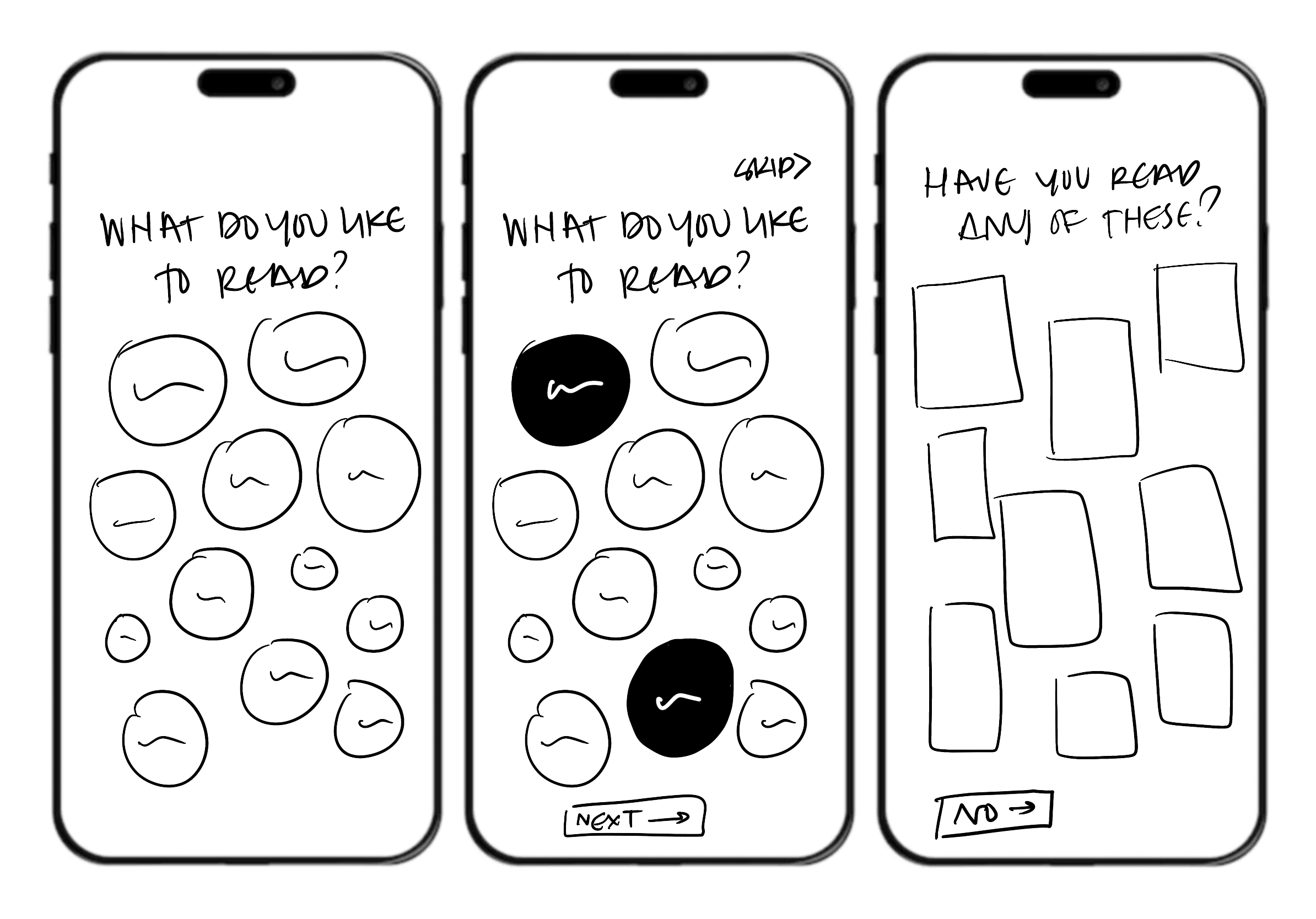
Onboarding questions
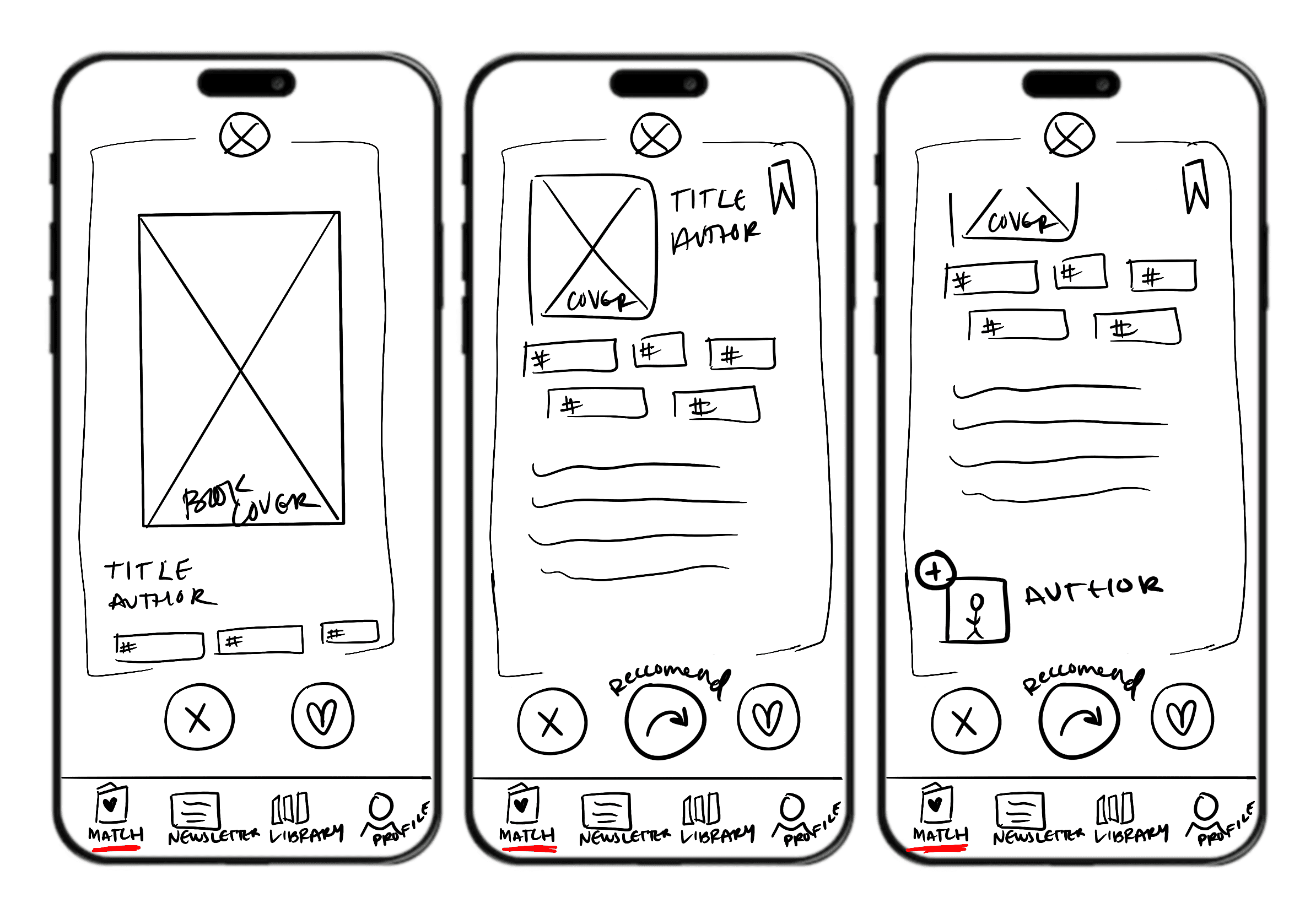
Book matching
IDEATION
Mid-Fidelity
The wireframing stage was dedicated to ensuring that the UX of our web-app aligns with the users' needs in terms of usability and functionality. Here are some of the mid-fidelity frames:
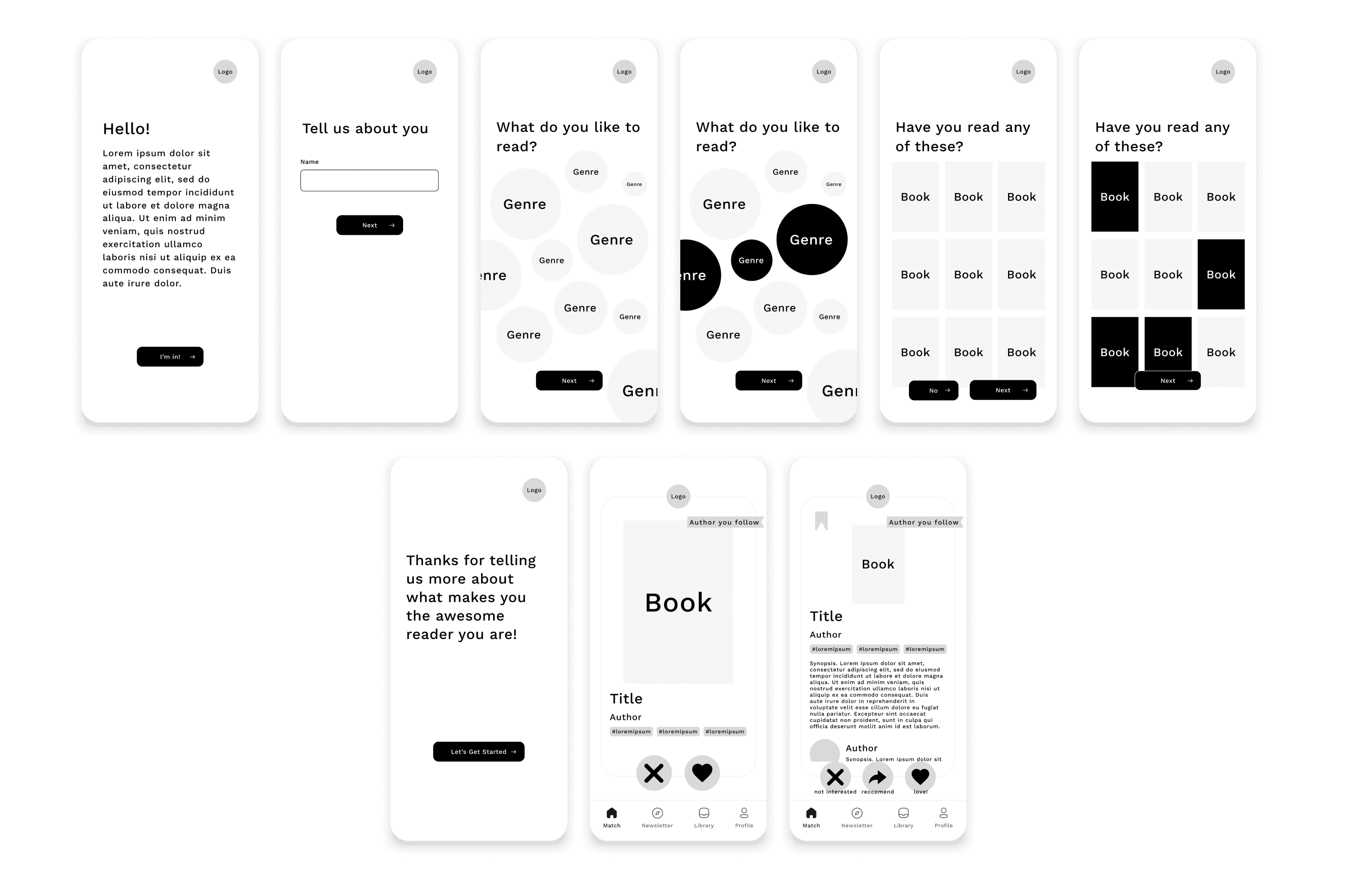
Onboarding and book matching process
SOLUTION
Final Designs
With the bones of my mid-fidelity model and critique from the class, I moved to create the final prototype. The application has 6 key features:
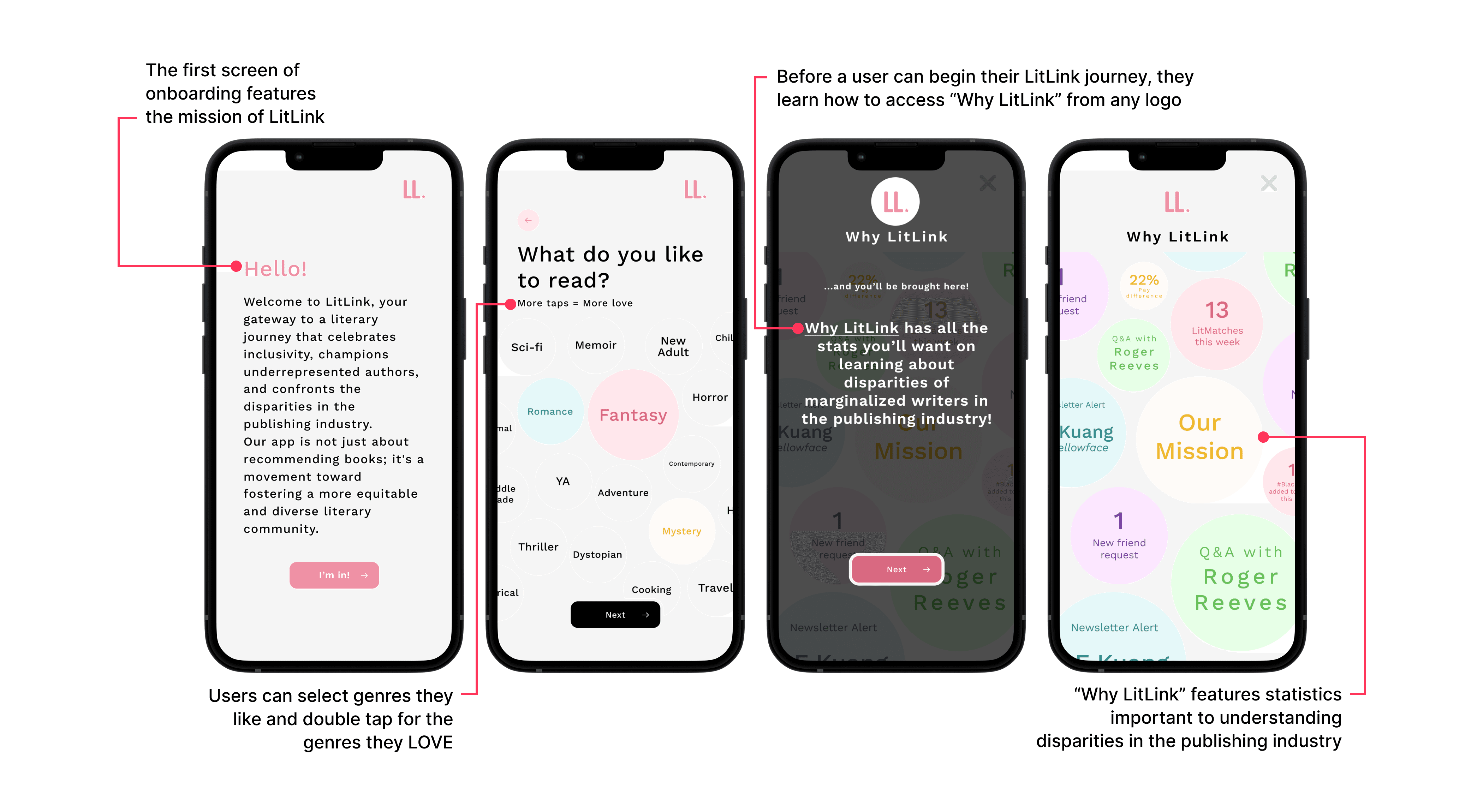
ONBOARDING & WHY LIT LINK?
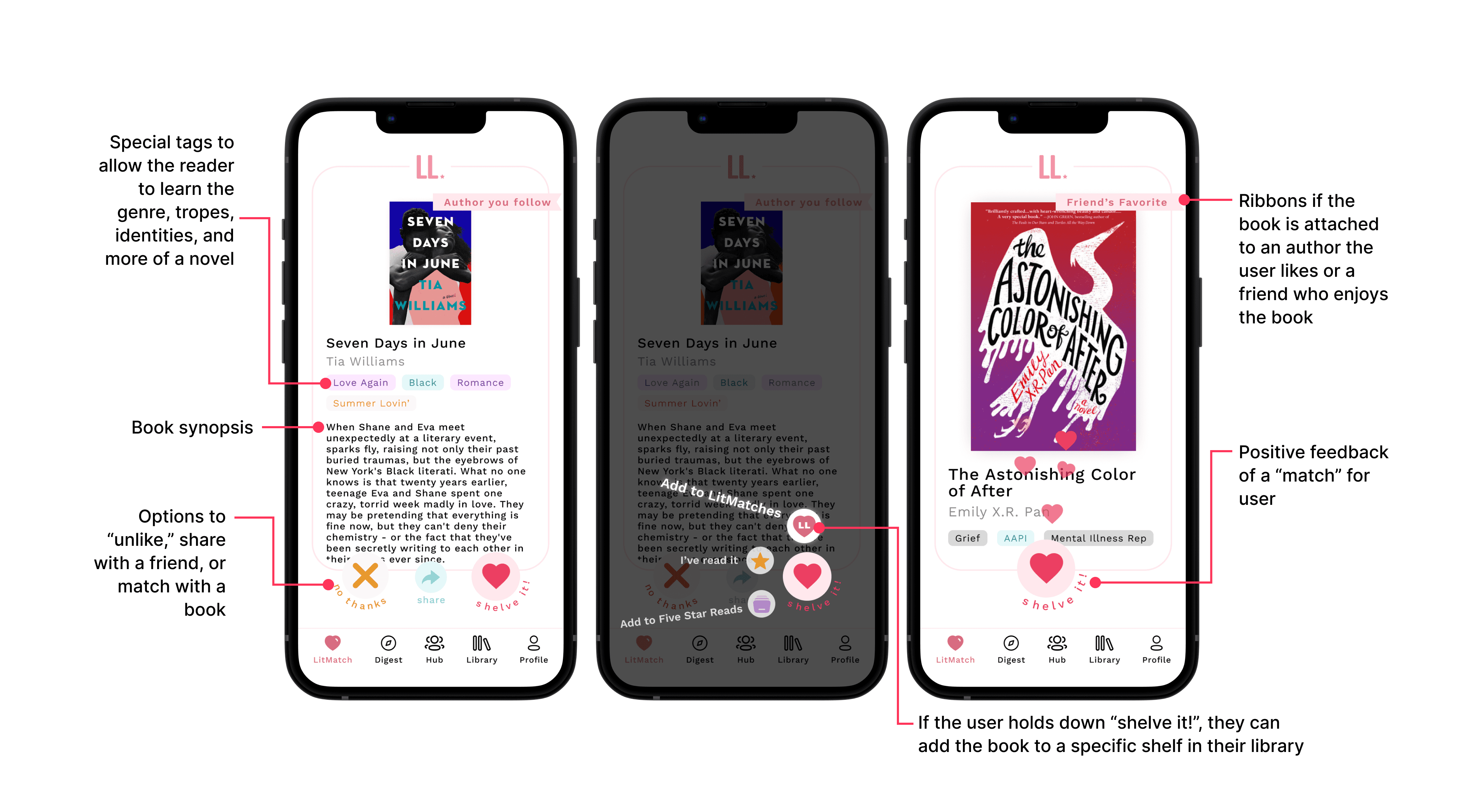
LIT MATCH
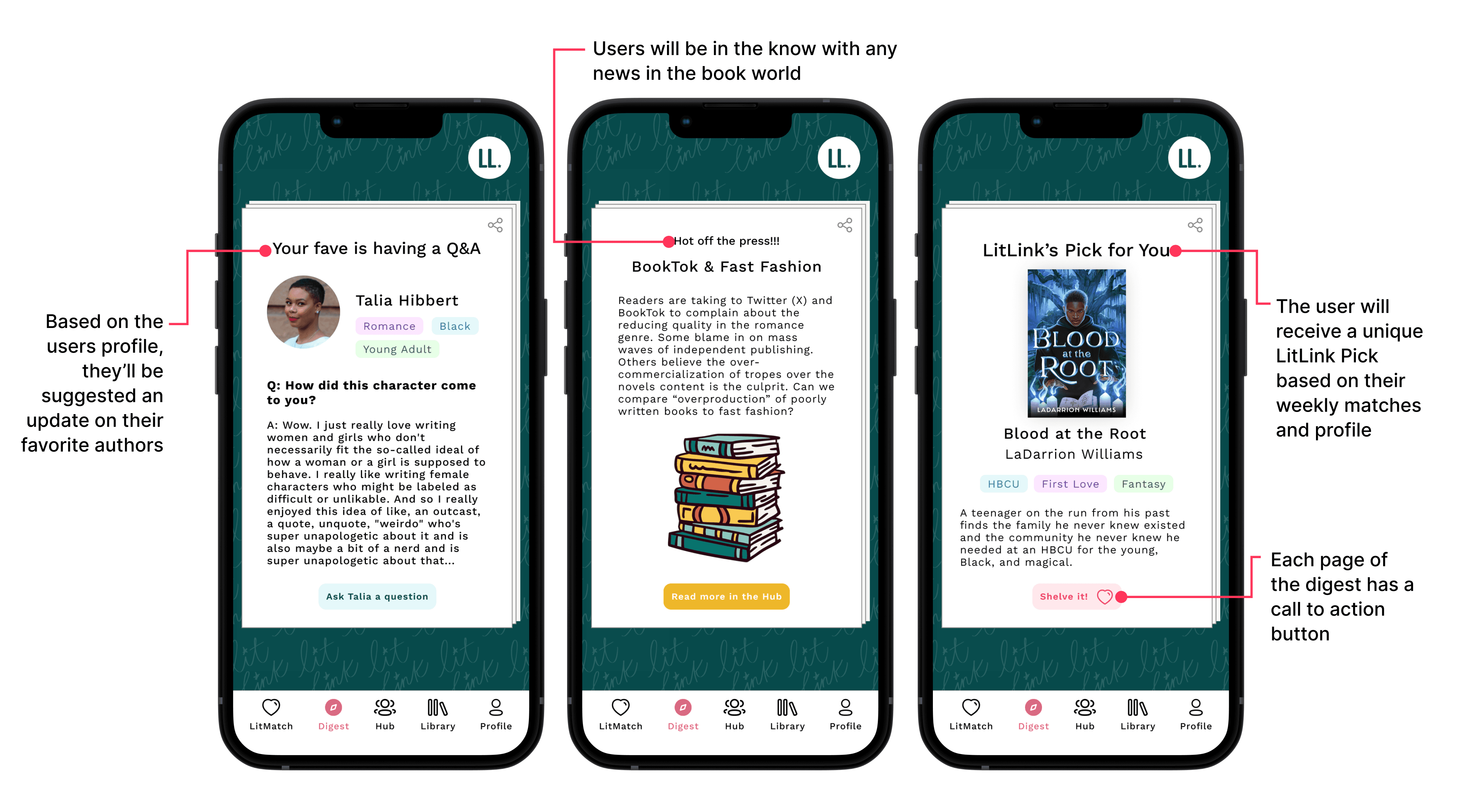
DAILY DIGEST
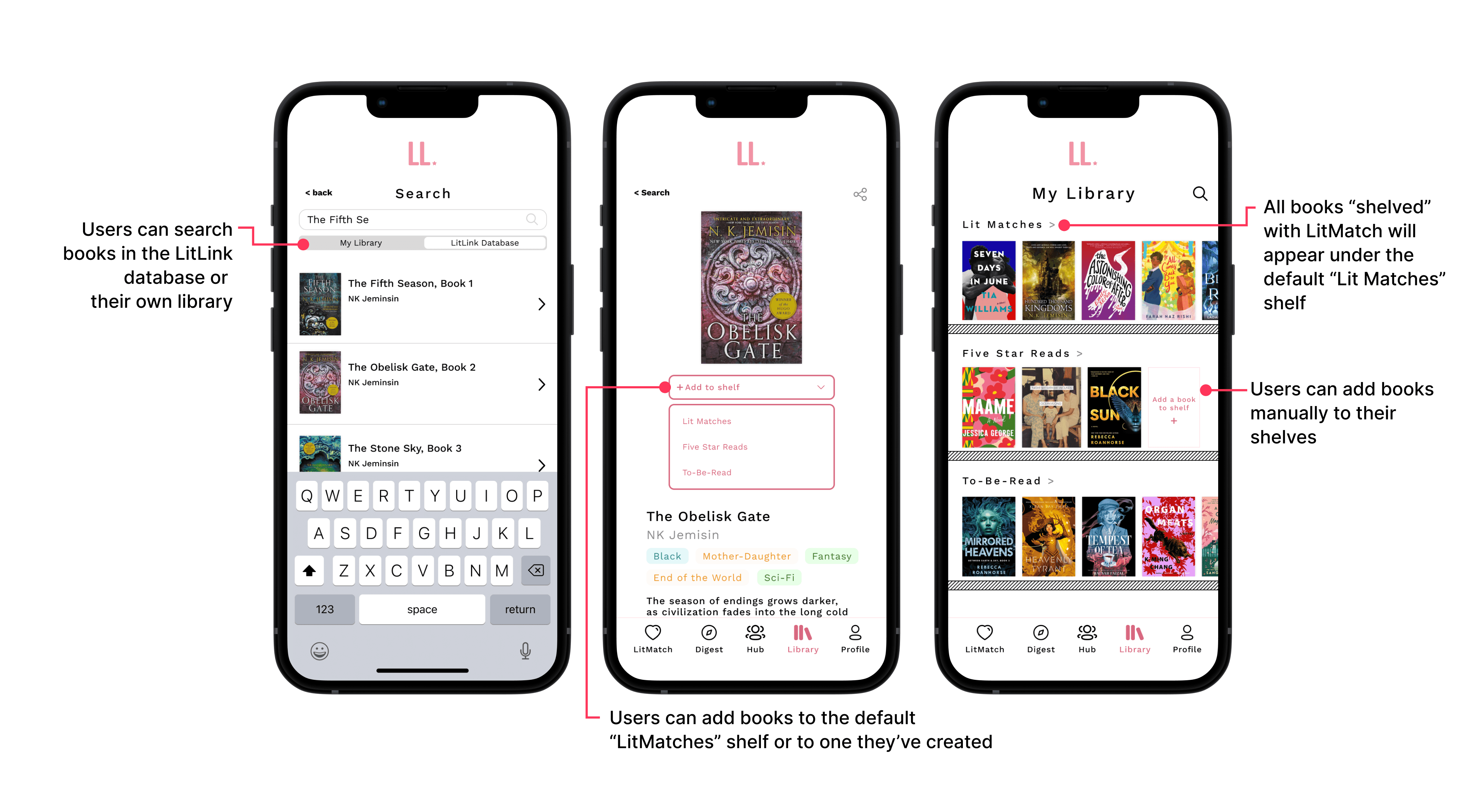
LIBRARY
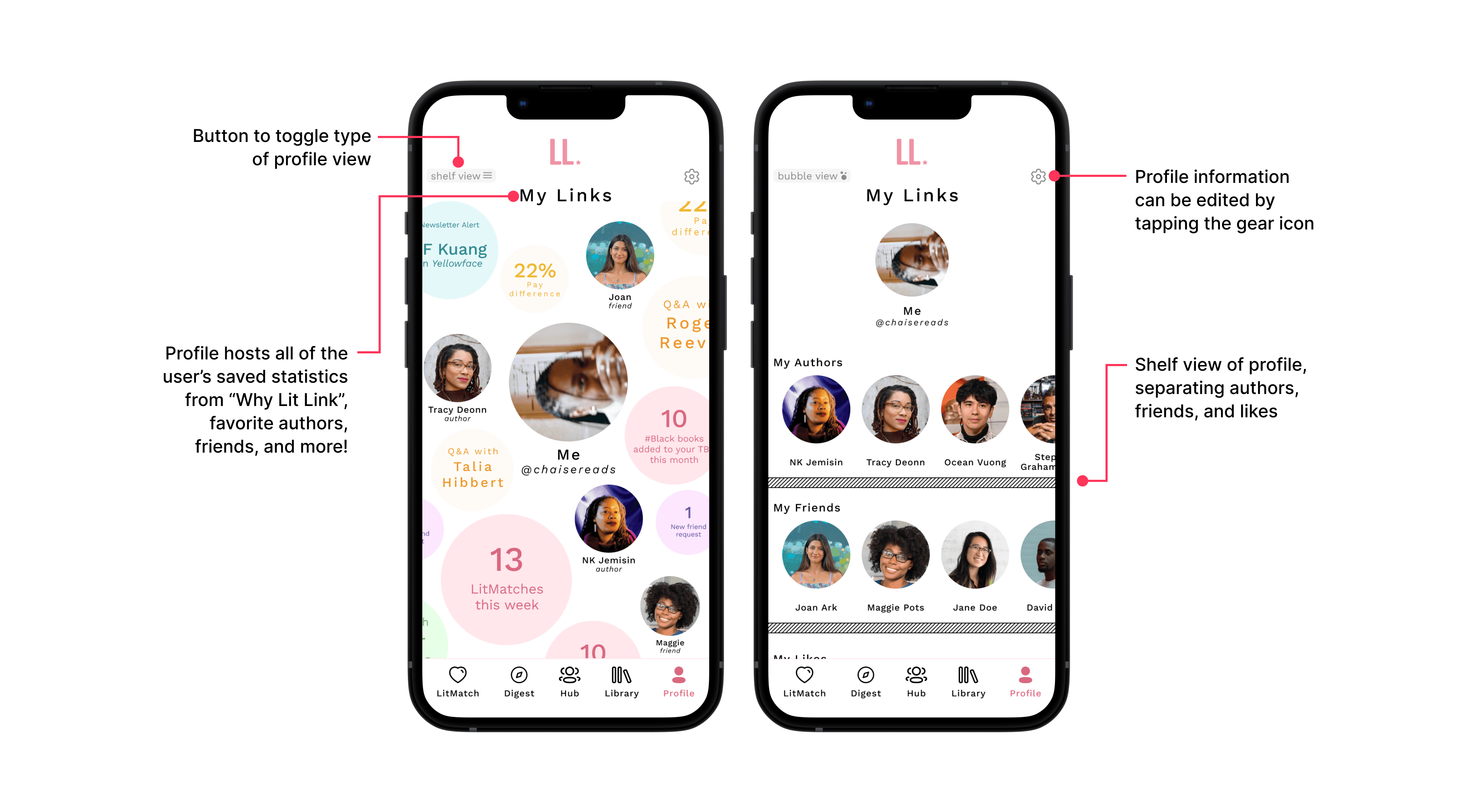
PROFILE
REFLECTION
What’s Next for LitLink?
Conduct more early-stage user testing
Conduct second round of user interviews and surveys, including marginalized authors
Research how best to include authors with invisible diverse identities (i.e. sexuality, neurodivergence, health conditions or impairments)
Key Takeaways
This design, deepened my passion for sharing diverse narratives that do not exploit but instead show the multifaceted nature of marginalized identities. Most of the books from my childhood centered white main characters, and while that narrative is changing, I believe LitLink can work alongside the movers and shakers.